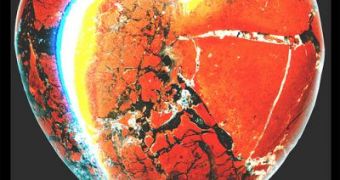Scientists at Mayo Clinic along with Belgian collaborators have found a way of guiding stem cells so that they can heal, repair and regenerate damaged heart tissue.
Generally, stem cells isolated from patients have a limited capacity of repairing the heart, and this new method that researchers found, actually managed to boost up their regenerative benefit by programming the adult stem cells to have a cardiac-like profile.
With help from a mix of cardiogenic growth factors, the crop of mesenchymal stem cells (MSCs) from the bone marrow of several patients with coronary artery disease presented “superior functional and structural benefit without adverse side effects” over a one year follow-up period in a model of heart failure, according to the authors of the study.
In order to get to this result, scientists gathered bone marrow-derived stem cells from heart disease patients that had coronary bypass surgery and, after testing them, they observed that two out of 11 individuals presented cells with a very high capacity for heart repair.
After analyzing these rare stem cells, researchers found a molecular signature that is typical of them, that could be induced in non-reparative patient stem cells to condition their ability of repairing the heart through a cardiogenic cocktail.
This whole process was tested on mice and mouse models with heart failure showed a bigger capacity of heart function recovery and a bigger survival rate after a year.
Researchers also found that the heart tissue healed more efficiently, human cardiac and vascular cells took part in the regeneration, repair and strengthening of heart structures process and that scars and traces of heart damage started disappearing.
Andre Terzic, MD, PhD, Mayo Clinic researcher and senior investigator of the study, says that “these findings provide proof-of-principle that “smart” adult stem cells have added benefit in repairing the heart, providing the foundation for further clinical evaluation.”
“The successful use of guided “lineage specified” human stem cells is based on natural cardiogenic cues” says further Atta Behfar, MD, PhD, first author of the study.
Eduardo Marban, MD, PhD, and Konstantinos Malliaras, MD, of Cedars-Sinai Heart Institute, in Los Angeles write in their editorial that the Mayo approach is like “boot camp” for stem cells and that the study "… provides the first convincing evidence that MSCs, at least in vitro, can in fact become functional cardiomyocytes (heart cells) …"
These findings appeared yesterday in the Journal of the American College of Cardiology and they have a long-term potential for developing effective regenerating therapy for people with chronic heart failure.

 14 DAY TRIAL //
14 DAY TRIAL //